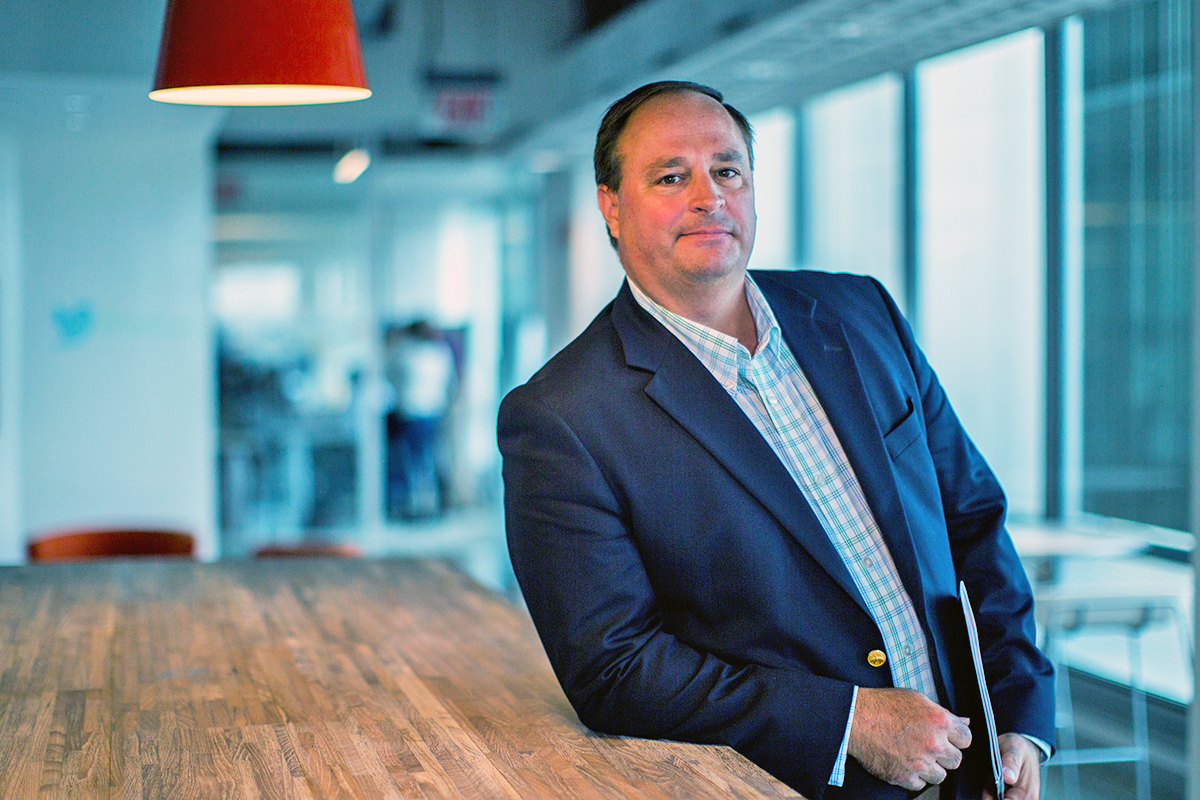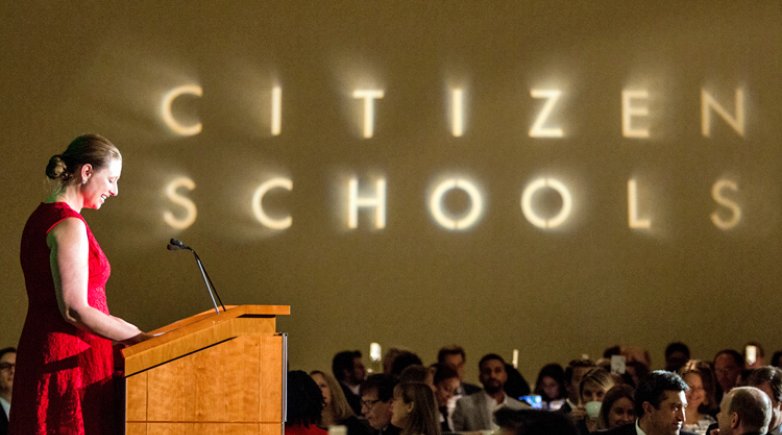Social justice superheroes
Megan Bird ’99 and Brooks Tingle ’83 educate outside the box and take learning from the classroom to the executive suite.
Megan Bird ’99.
When Megan Bird ’99 first arrived at the John Hancock offices in Boston’s Back Bay, she was, admittedly, a tad nervous. The 34-year-old was fairly new to her position as executive director of Citizen Schools Massachusetts and had never led an orientation session for a new board member. She was confident she could capture the attention of middle-schoolers — but the president and chief executive officer of one of the largest insurance companies in the country? “I was a little intimidated,” Bird recalls. “Then I thought of the Harkness table, and how someone once said it’s like the boardroom table when you grow up, and I thought, "I can do this.’”
Bird need not have worried. The accomplished CEO she was schooling was a fellow Exonian, Brooks Tingle ’83. Their Exeter connection came quickly to light when Tingle asked Bird a simple question to break the ice: “You have insurance, Megan, right?” As is often the case, that simple question required much more than a simple answer. During Bird’s lower year at Exeter, her mother was diagnosed with breast cancer. “My mother passed away when I was 19, and I was able to finish going to Exeter and pay for college because of that insurance,” Bird says. “I don’t usually tell people about my mom in my first conversation with them, but insurance really did make my life possible."

While the two perhaps may not have gravitated to the same circles in prep school — Bird is a self-proclaimed introvert and nerd, Tingle a gregarious athlete — they bonded over their shared belief in service and the transformative power of education. “I think it is incumbent upon those of us who have had the privilege of a world-class education like at Exeter,” Tingle says, “to make sure that all young people have exposure to learning opportunities beyond the basic school curriculum.” Bird is driven by her mother’s example. “My mom was a family doctor and served low-income communities,” she says. “She also worked in teaching hospitals, and I think that’s why I chose to do mission-driven work and was really attracted to education.”


